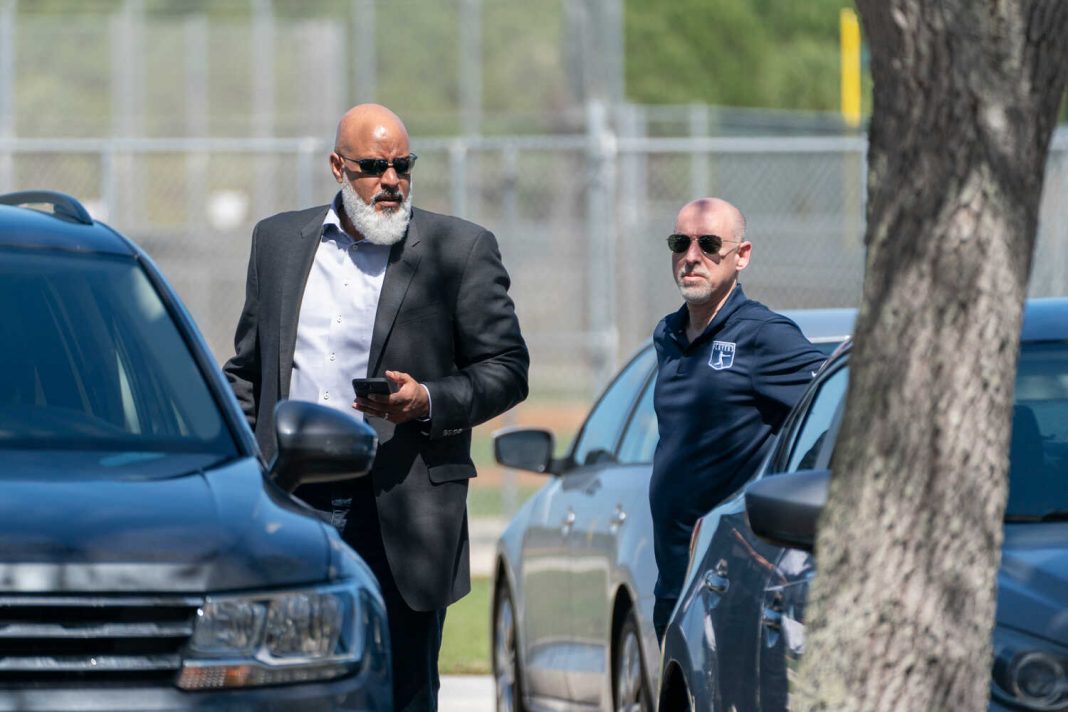In light of the impending start of the 2022 regular season and the lack of progress toward a new collective bargaining agreement, despite face-to-face negotiations this week, Major League Baseball reiterated its position toward the players’ union on Wednesday, threatening to take legal action if the players’ union does not abide by the league’s demands.
While in town for talks, the Major League Baseball organisation told the players’ union that it was serious about meeting its stated deadline of Feb. 28 to reach a labour agreement, and that if that deadline was not met, the league would begin cancelling games and not compensate players for those games missed, according to a league spokesman who spoke to reporters on the condition of anonymity. He said that games that were missed will not be rescheduled.
Given the delicate nature of the discussions, a union official, who spoke on the condition of anonymity, confirmed that the M.L.B. conveyed this ultimatum during negotiations on Wednesday afternoon.
Players, on the other hand, have already made their own threat in the course of these collective bargaining discussions. It was reported that they had informed Major League Baseball negotiators that they were hesitant to provide team owners an enlarged postseason — worth an estimated $100 million yearly — if they were forced to forfeit games and money, according to the official.
Earlier this month, Major League Baseball Commissioner Rob Manfred said that losing regular-season games would be “disastrous” for the league. A minimum spring training duration of four weeks — two weeks shorter than typical — was also recommended by him, in order to prevent a rise in injuries similar to the one that occurred before the pandemic-reduced, 60-game 2020 regular season, which was curtailed by two weeks. In spite of the fact that Manfred did not openly state a precise deadline or threat at that time, his perspective of the calendar was suggested by his actions.
During a bargaining session in New York on February 12, the M.L.B. provided the union with a deadline for completion of the contract. The league reasoned that a new agreement needed be reached by Monday in order to squeeze in four weeks of camp and have players and staff in place in Arizona and Florida in time to begin spring training on March 3.
The union, on the other hand, was not in agreement that February 28 should be a definite deadline. During the 32-day lockout in 1990, for example, spring training was reduced in half, but the entire schedule of regular-season games was played, with the season starting a week later than normal.
The M.L.B. spokesperson said on Wednesday that the parties still had five days to come up with a new labour agreement, despite the fact that they believe they have had a year to do so and that deadlines are deadlines.
Spring training, which was meant to begin last week, has failed to begin because the Major League Baseball locked out the players on December 2 — the day after the previous five-year collective bargaining agreement ended — and because a new labour agreement has yet to be reached. The Major League Baseball (MLB) stated late last week that the opening of spring training games, which had been scheduled for Feb. 26, would be postponed “until no soon than March 5.”
It was the 1994-95 player strike that resulted in the loss of nearly 900 games and the 1994 World Series that was the last time a labour stoppage in Major League Baseball caused regular-season games to be lost.
In general, the union has been advocating for a number of changes to the sport’s economic structure, with the purpose of assisting younger players who are on less lucrative contracts, increasing competition among clubs, limiting service time manipulation, and infusing more expenditure into the sport. The league, on the other hand, feels that players enjoy a fair system in the absence of a rigid pay limit and views the issue as one of wealth distribution, with elite players earning disproportionately higher salaries than average players.
Sensing a greater sense of urgency, the parties met at Roger Dean Stadium this week, starting on Monday — and if the discussions were fruitful, they might run the whole week. Apart from the bargaining teams from both sides, two club owners and at least 10 players who have leadership roles in the union also attended spring training at the spring training grounds of the St. Louis Cardinals and the Miami Marlins.
So far, though, each side has been dissatisfied with the other because of what they perceive to be relatively minor concessions — or even steps backward. Unresolved issues, such as the luxury tax and revenue-sharing mechanisms, are some of the most important issues facing the country.
On Wednesday, Major League Baseball’s newest offer focused on a single point: a $10,000 increase in the proposed league minimum pay, which begins at $640,000 and rises by $10,000 per year beginning with the first year. The union has asked for a minimum wage of $775,000, which would increase by $30,000 every season if achieved. In the year 2021, the minimum wage was $570,500.

